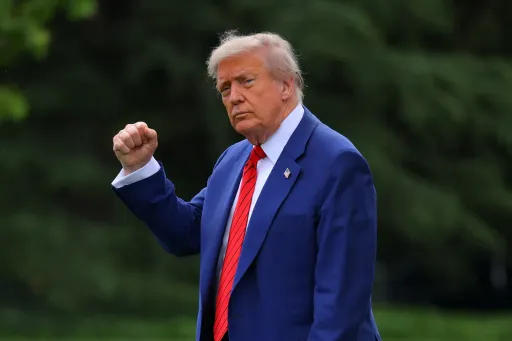A federal bench trial began in Boston on Monday over a lawsuit challenging Trump’s immigration crackdown that targeted international students and faculty involved in pro-Palestinian protests and political activity.
Filed by several university associations against US President Donald Trump and members of his administration, the lawsuit accuses the government of orchestrating a campaign of arrests and deportations in retaliation for constitutionally protected speech.
The plaintiffs are seeking a ruling from US District Judge William Young that the policy violates both the First Amendment and the Administrative Procedure Act, a federal law governing how agencies craft and implement regulations.
“Noncitizen students and faculty across the United States have been terrified into silence,” the plaintiffs wrote in a pretrial brief. “They’re avoiding protests, scrubbing social media, and self-censoring in classrooms and publications.”

Activism suppressed, voices silenced
The plaintiffs argue that the policy, though never formally codified, was carried out through a series of administrative actions, guidance memos, and public statements aimed at suppressing political dissent, particularly criticism of Israel.
Scholars expected to testify will describe how fear of surveillance and detention drove them to abandon advocacy for Palestinian human rights or scholarship seen as politically sensitive.
Among them is Mahmoud Khalil, a Palestinian activist and Columbia University graduate, who spent 104 days in federal immigration detention before being released last month.
His case, cited in the lawsuit, became emblematic of the alleged crackdown after Trump called Khalil’s arrest “the first of many to come.”
Another plaintiff, Rumeysa Ozturk, a Tufts University student from Türkiye, was held in a Louisiana immigration facility for six weeks after being detained on a Boston sidewalk.
Her arrest followed the publication of an op-ed critical of her university’s stance on Israel’s ongoing genocide in Gaza.
The plaintiffs allege the Trump administration provided universities with names of students and faculty to monitor, launched a covert social media surveillance program, and issued internal guidance to revoke visas and green cards of those tied to campus protests.

‘There is no policy’
The Trump administration, defending the case, argues no such policy ever existed and accuses the plaintiffs of misrepresenting immigration enforcement as political retribution.
“They do not allege this programme exists in any statute, regulation, or official directive,” the Justice Department wrote in court filings. “That’s because no such policy exists.”
Government lawyers further contend that immigration law gives broad discretion to authorities and that deportations based on visa violations or other legal grounds are lawful, even if the individuals involved engage in political speech.
“The plaintiffs’ case rests on a misunderstanding of the First Amendment,” the government argues, adding that its protections apply differently in immigration matters.
A landmark free speech case?
Legal analysts say the trial could set a critical precedent on the limits of immigration enforcement in the context of political speech, especially as US campuses become flashpoints in debates over Middle East policy and student activism.
Plaintiffs maintain that, regardless of formal documentation, the weight of evidence, including public statements by Trump and his officials, will show a clear pattern of targeting pro-Palestinian voices.
“Defendants have described this policy, defended it, and taken credit for it,” the plaintiffs argued. “It is only now, under legal scrutiny, that they deny it exists.”
The trial is expected to run for several days, with a ruling to follow later this year.



















